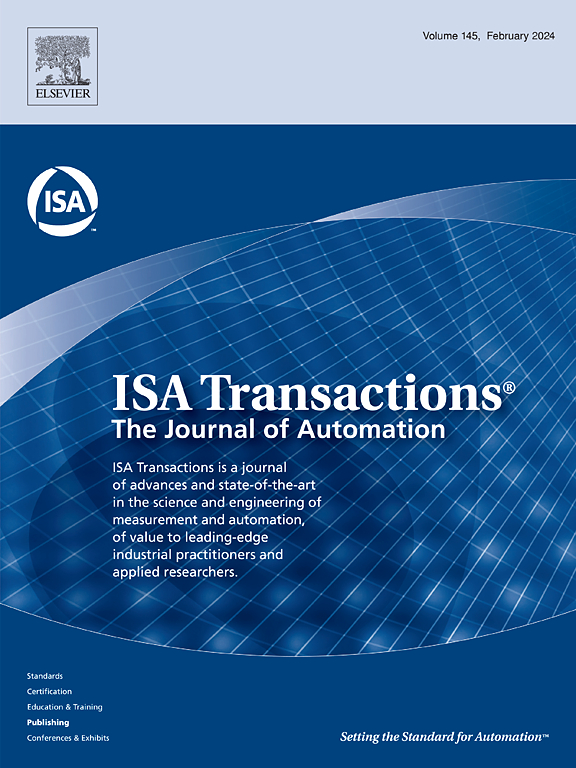A performance degradation assessment method for complex electromechanical systems based on adaptive evidential reasoning rule
IF 6.3
2区 计算机科学
Q1 AUTOMATION & CONTROL SYSTEMS
引用次数: 0
Abstract
The evidence reasoning (ER) rule has been widely used in various fields to deal with both quantitative and qualitative information with uncertainty. However, when analyzing dynamic systems, the importance of various indicators frequently changes with time and working conditions, such as performance degradation assessment of complex electromechanical systems, and the weights of the traditional evidence reasoning rules cannot be appropriately adjusted. To solve this problem, this paper proposes an adaptive evidence reasoning (AER) rule that can adjust weights according to different times and working conditions. The AER rule has two unique features: adaptive weight operation under time division and adaptive weight operation under working-condition division, which are used to solve the problem of dynamic weight adjustment under different times and working conditions. The CMA-ES algorithm is used to optimize the model parameters. Two case studies of performance degradation assessment are established to prove the advantage of the AER rule: a computer numerical control experiment and a simulation experiment of turbofan aeroengine. The results verify the effectiveness and practicability of the proposed method.
基于自适应证据推理规则的复杂机电系统性能退化评估方法。
证据推理(ER)规则已被广泛应用于各个领域,用于处理具有不确定性的定量和定性信息。然而,在分析动态系统时,各种指标的重要性经常会随着时间和工况的变化而变化,例如复杂机电系统的性能退化评估,传统证据推理规则的权重无法适当调整。为了解决这个问题,本文提出了一种自适应证据推理(AER)规则,可以根据不同的时间和工作条件调整权重。AER 规则有两个独特的功能:时间划分下的自适应权重运算和工作条件划分下的自适应权重运算,用于解决不同时间和工作条件下的动态权重调整问题。采用 CMA-ES 算法对模型参数进行优化。为证明 AER 规则的优势,建立了两个性能退化评估案例研究:计算机数控实验和涡扇航空发动机仿真实验。结果验证了所提方法的有效性和实用性。
本文章由计算机程序翻译,如有差异,请以英文原文为准。
求助全文
约1分钟内获得全文
求助全文
来源期刊

ISA transactions
工程技术-工程:综合
CiteScore
11.70
自引率
12.30%
发文量
824
审稿时长
4.4 months
期刊介绍:
ISA Transactions serves as a platform for showcasing advancements in measurement and automation, catering to both industrial practitioners and applied researchers. It covers a wide array of topics within measurement, including sensors, signal processing, data analysis, and fault detection, supported by techniques such as artificial intelligence and communication systems. Automation topics encompass control strategies, modelling, system reliability, and maintenance, alongside optimization and human-machine interaction. The journal targets research and development professionals in control systems, process instrumentation, and automation from academia and industry.
 求助内容:
求助内容: 应助结果提醒方式:
应助结果提醒方式:


